Fifteenth Century Quotes & Sayings
Enjoy reading and share 49 famous quotes about Fifteenth Century with everyone.
Top Fifteenth Century Quotes

People are confusing me with a good actor when I'm just a good mimic. When someone asks me to play a nun from the fifteenth century, you'll see what I mean. — Jemima Kirke
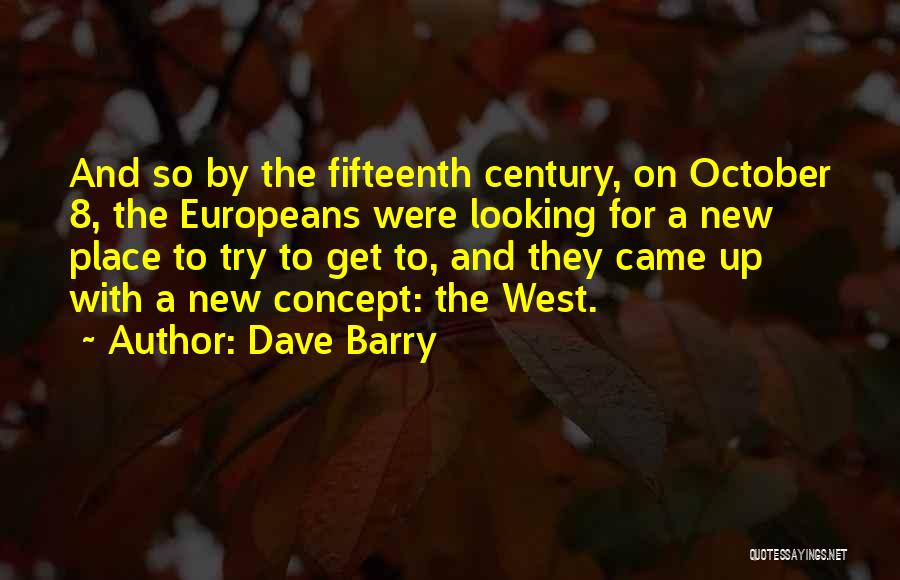
And so by the fifteenth century, on October 8, the Europeans were looking for a new place to try to get to, and they came up with a new concept: the West. — Dave Barry
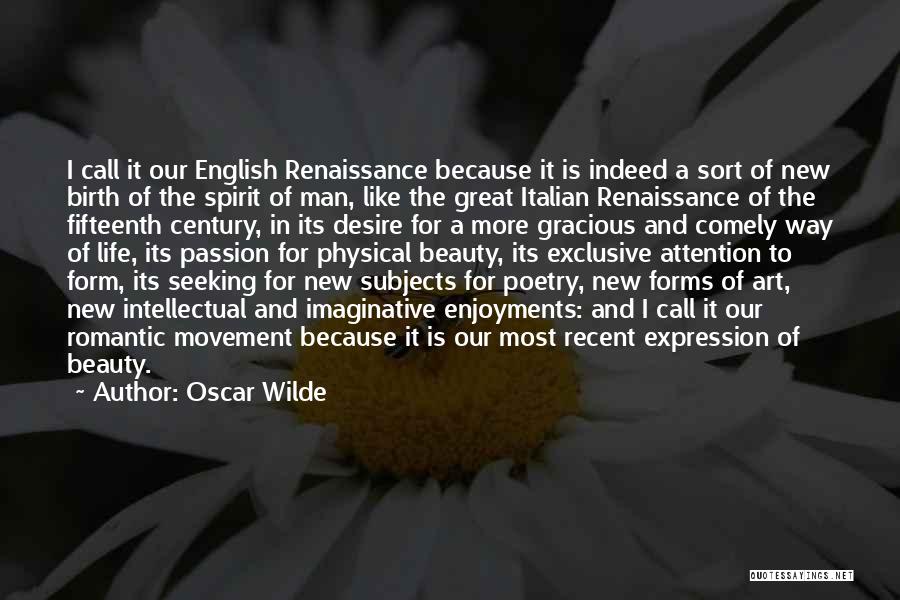
I call it our English Renaissance because it is indeed a sort of new birth of the spirit of man, like the great Italian Renaissance of the fifteenth century, in its desire for a more gracious and comely way of life, its passion for physical beauty, its exclusive attention to form, its seeking for new subjects for poetry, new forms of art, new intellectual and imaginative enjoyments: and I call it our romantic movement because it is our most recent expression of beauty. — Oscar Wilde
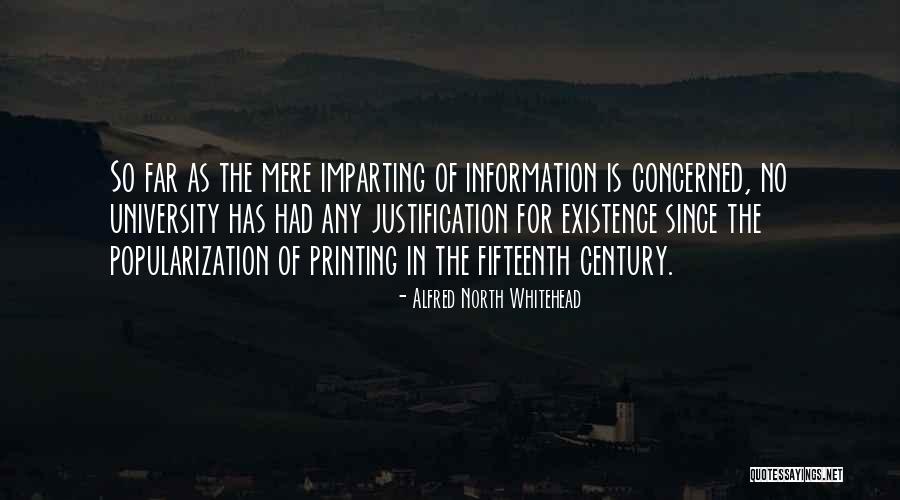
So far as the mere imparting of information is concerned, no university has had any justification for existence since the popularization of printing in the fifteenth century. — Alfred North Whitehead
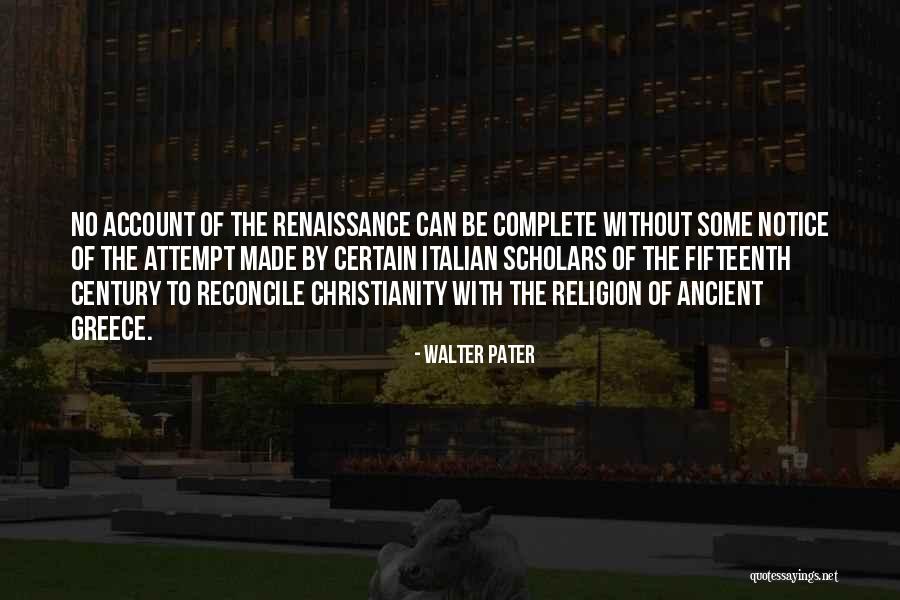
No account of the Renaissance can be complete without some notice of the attempt made by certain Italian scholars of the fifteenth century to reconcile Christianity with the religion of ancient Greece. — Walter Pater
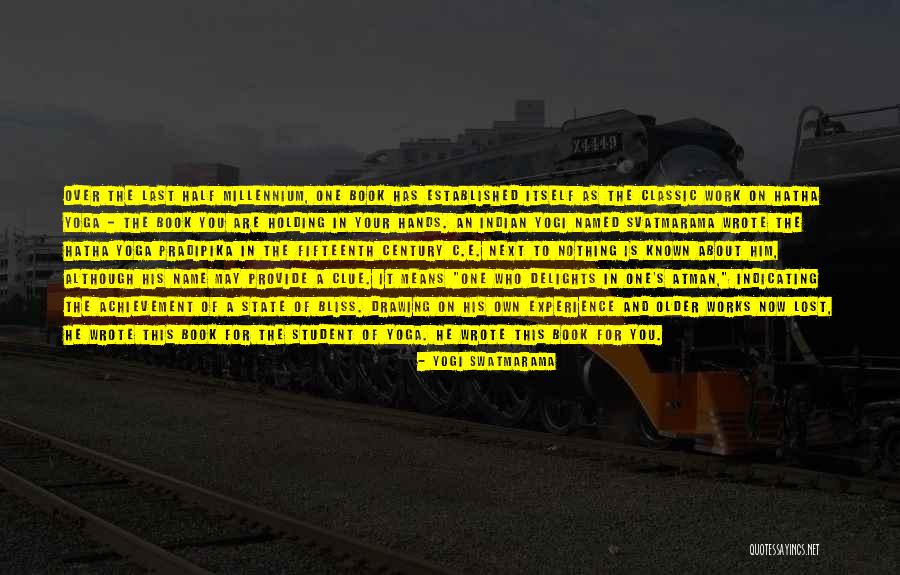
OVER THE last half millennium, one book has established itself as the classic work on Hatha Yoga - the book you are holding in your hands. An Indian yogi named Svatmarama wrote the Hatha Yoga Pradipika in the fifteenth century C.E. Next to nothing is known about him, although his name may provide a clue. It means "one who delights in one's Atman," indicating the achievement of a state of bliss. Drawing on his own experience and older works now lost, he wrote this book for the student of Yoga. He wrote this book for you. — Yogi Swatmarama

She had to quickly pop back to the fifteenth century to find a word for how beautiful he was. The boy was makeless. — Helen Oyeyemi
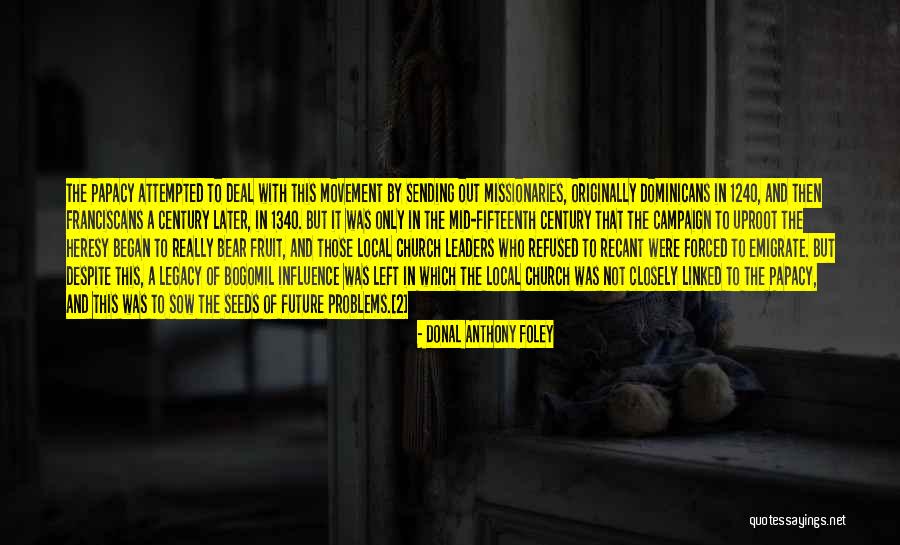
The Papacy attempted to deal with this movement by sending out missionaries, originally Dominicans in 1240, and then Franciscans a century later, in 1340. But it was only in the mid-fifteenth century that the campaign to uproot the heresy began to really bear fruit, and those local Church leaders who refused to recant were forced to emigrate. But despite this, a legacy of Bogomil influence was left in which the local Church was not closely linked to the Papacy, and this was to sow the seeds of future problems.[2] — Donal Anthony Foley
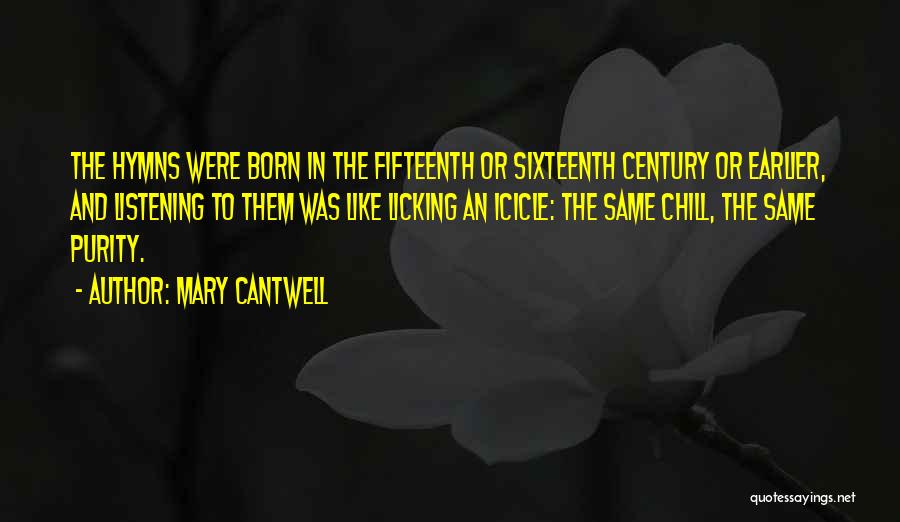
The hymns were born in the fifteenth or sixteenth century or earlier, and listening to them was like licking an icicle: the same chill, the same purity. — Mary Cantwell

One feature of the usual script for plague: the disease invariably comes from somewhere else. The names for syphilis, when it began its epidemic sweep through Europe in the last decade of the fifteenth century are an exemplary illustration of the need to make a dreaded disease foreign. It was the "French pox" to the English, morbus Germanicus to the Parisians, the Naples sickness to the Florentines, the Chinese disease to the Japanese. But what may seem like a joke about the inevitability of chauvinism reveals a more important truth: that there is a link between imagining disease and imagining foreignness. — Susan Sontag

I succumbed. Late-fifteenth-century verb, Old French succomber or Latin succumbere, but a basic necessity of the human condition, especially mine. — David Mitchell
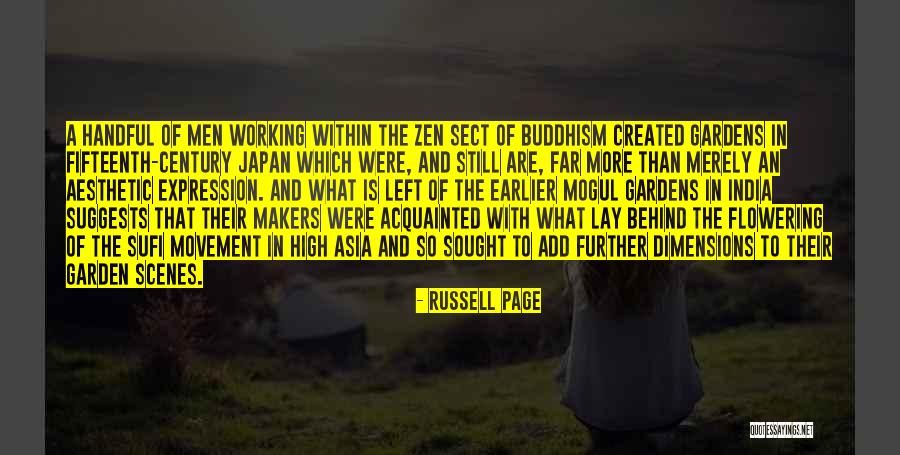
A handful of men working within the Zen sect of Buddhism created gardens in fifteenth-century Japan which were, and still are, far more than merely an aesthetic expression. And what is left of the earlier Mogul gardens in India suggests that their makers were acquainted with what lay behind the flowering of the Sufi movement in High Asia and so sought to add further dimensions to their garden scenes. — Russell Page
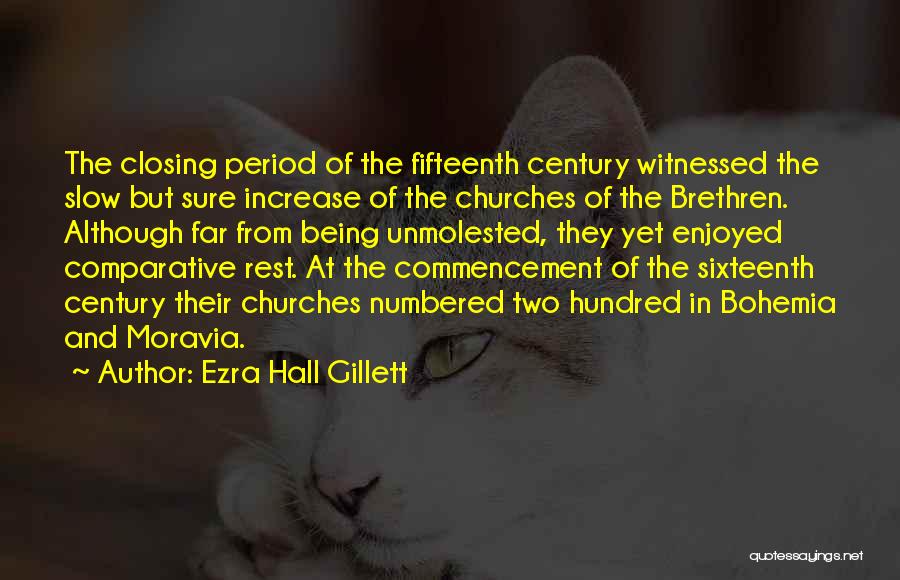
The closing period of the fifteenth century witnessed the slow but sure increase of the churches of the Brethren. Although far from being unmolested, they yet enjoyed comparative rest. At the commencement of the sixteenth century their churches numbered two hundred in Bohemia and Moravia. — Ezra Hall Gillett

There is another, grimmer history to the filibuster, though, one that carries special relevance for me. For almost a century, the filibuster was the South's weapon of choice in its efforts to protect Jim Crow from federal interference, the legal blockade that effectively gutted the Fourteenth and Fifteenth Amendments. Decade after decade, courtly, erudite men like Senator Richard B Russell of Georgia used the filibuster to choke off any and every piece of civil rights legislation before the Senate, whether voting rights bills, or fair employment bills, or anti-lynching bills. — Barack Obama
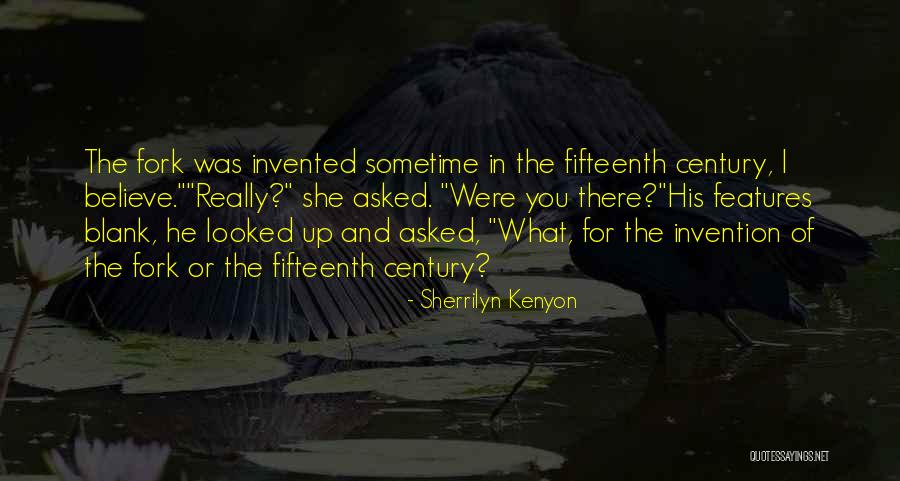
The fork was invented sometime in the fifteenth century, I believe."
"Really?" she asked. "Were you there?"
His features blank, he looked up and asked, "What, for the invention of the fork or the fifteenth century? — Sherrilyn Kenyon
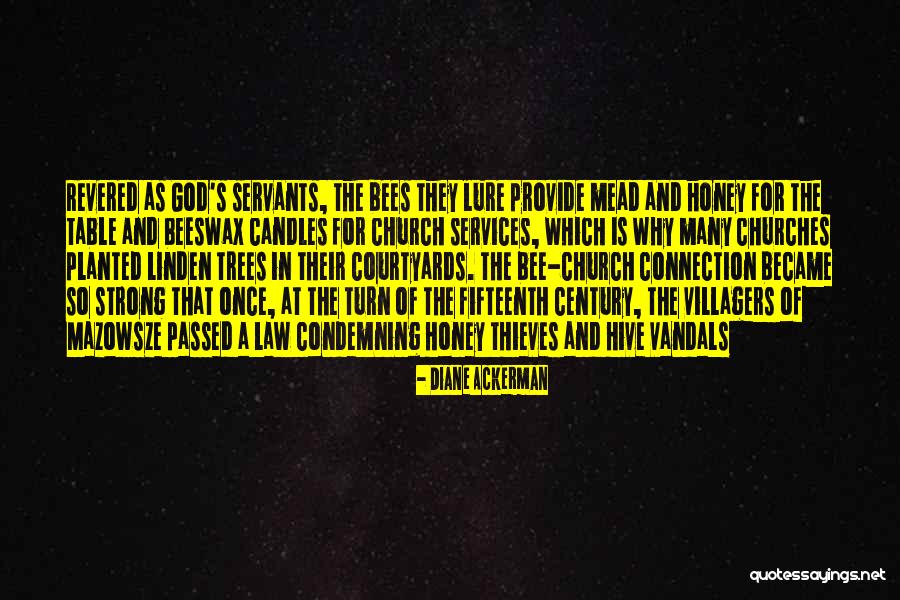
Revered as God's servants, the bees they lure provide mead and honey for the table and beeswax candles for church services, which is why many churches planted linden trees in their courtyards. The bee-church connection became so strong that once, at the turn of the fifteenth century, the villagers of Mazowsze passed a law condemning honey thieves and hive vandals — Diane Ackerman

The memory was the only recording instrument of the great part of the population. Deeds and transfers were made permanent by beating young retainers so they would remember. The training of the Welsh poets was not practice but memorizing. On knowing 10,000 poems, one took a position. This has always been true. Written words have destroyed what must have been a remarkable instrument. The Pastons speak of having the messenger read the letter so that he could repeat it verbatim if it was stolen or lost. And some of these letters were complicated. If Malory were in prison, it is probably true that he didn't need books. He knew them. If I had only twelve books in my library I would know them by heart. And how many men had no memory in the fifteenth century? No - the book owned must have been supplemented by the book borrowed and thus by the book heard. The tremendous history of the Persian Wars of Herodotus was known by all Athenians and it was not read by them, it was read to them. — John Steinbeck
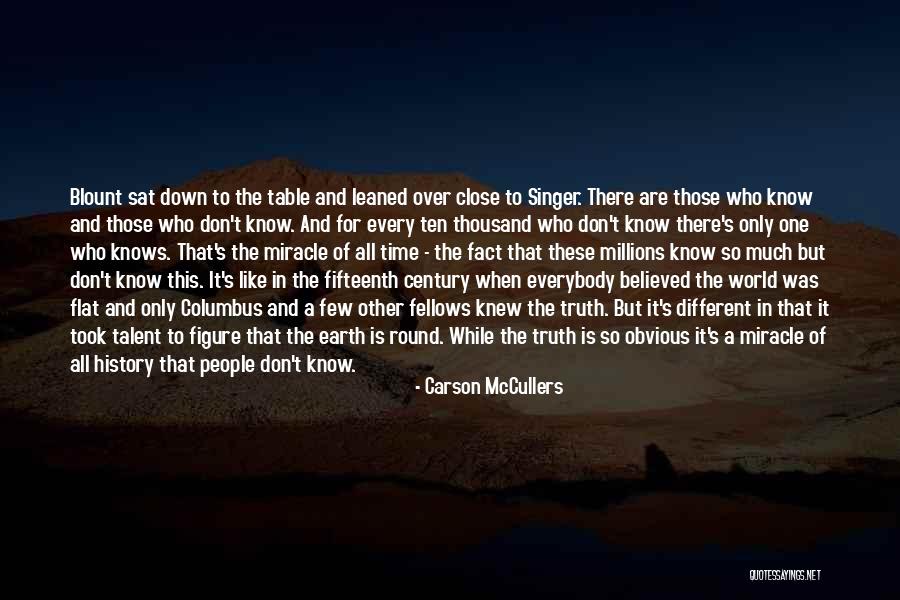
Blount sat down to the table and leaned over close to Singer. There are those who know and those who don't know. And for every ten thousand who don't know there's only one who knows. That's the miracle of all time - the fact that these millions know so much but don't know this. It's like in the fifteenth century when everybody believed the world was flat and only Columbus and a few other fellows knew the truth. But it's different in that it took talent to figure that the earth is round. While the truth is so obvious it's a miracle of all history that people don't know. — Carson McCullers
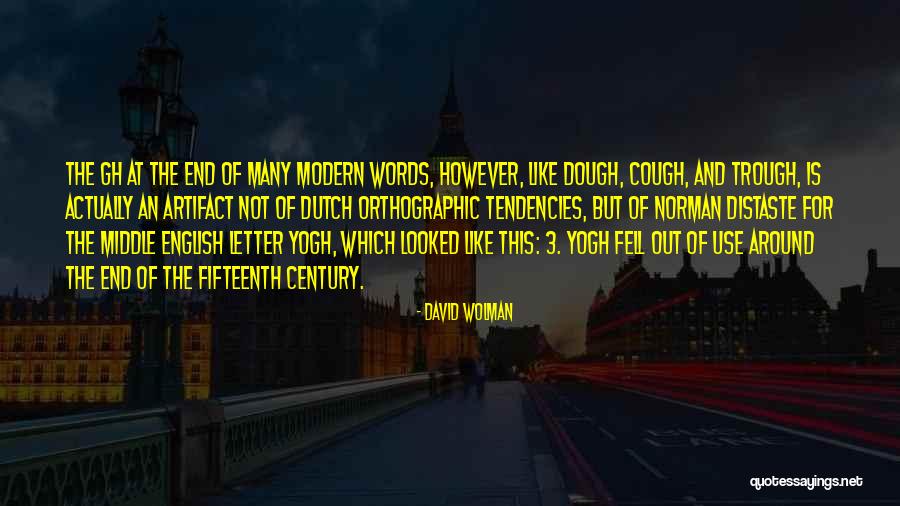
The gh at the end of many modern words, however, like dough, cough, and trough, is actually an artifact not of Dutch orthographic tendencies, but of Norman distaste for the Middle English letter yogh, which looked like this: 3. Yogh fell out of use around the end of the fifteenth century. — David Wolman
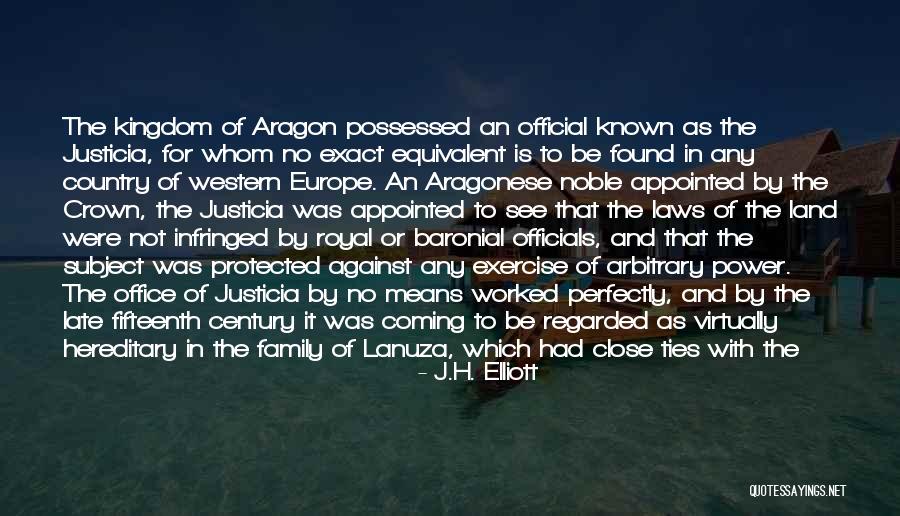
The kingdom of Aragon possessed an official known as the Justicia, for whom no exact equivalent is to be found in any country of western Europe. An Aragonese noble appointed by the Crown, the Justicia was appointed to see that the laws of the land were not infringed by royal or baronial officials, and that the subject was protected against any exercise of arbitrary power. The office of Justicia by no means worked perfectly, and by the late fifteenth century it was coming to be regarded as virtually hereditary in the family of Lanuza, which had close ties with the Crown; but none the less, the... — J.H. Elliott
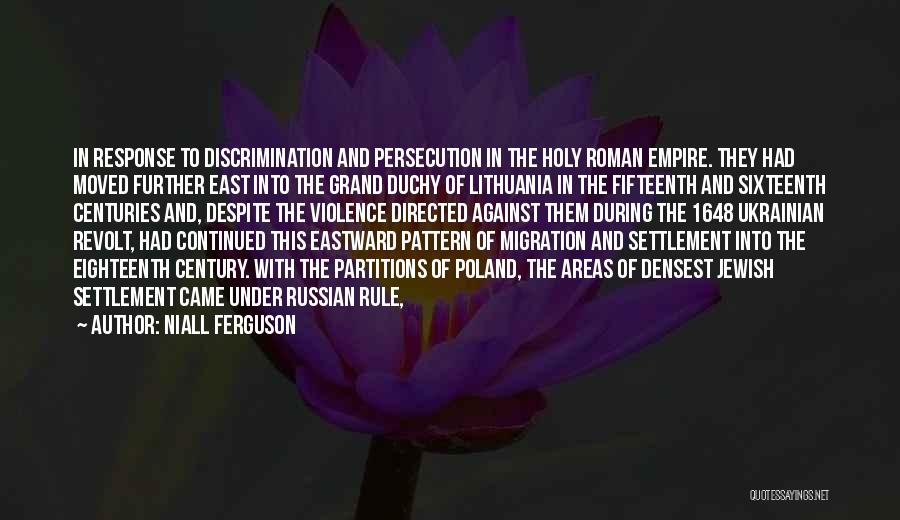
In response to discrimination and persecution in the Holy Roman Empire. They had moved further east into the Grand Duchy of Lithuania in the fifteenth and sixteenth centuries and, despite the violence directed against them during the 1648 Ukrainian revolt, had continued this eastward pattern of migration and settlement into the eighteenth century. With the partitions of Poland, the areas of densest Jewish settlement came under Russian rule, — Niall Ferguson
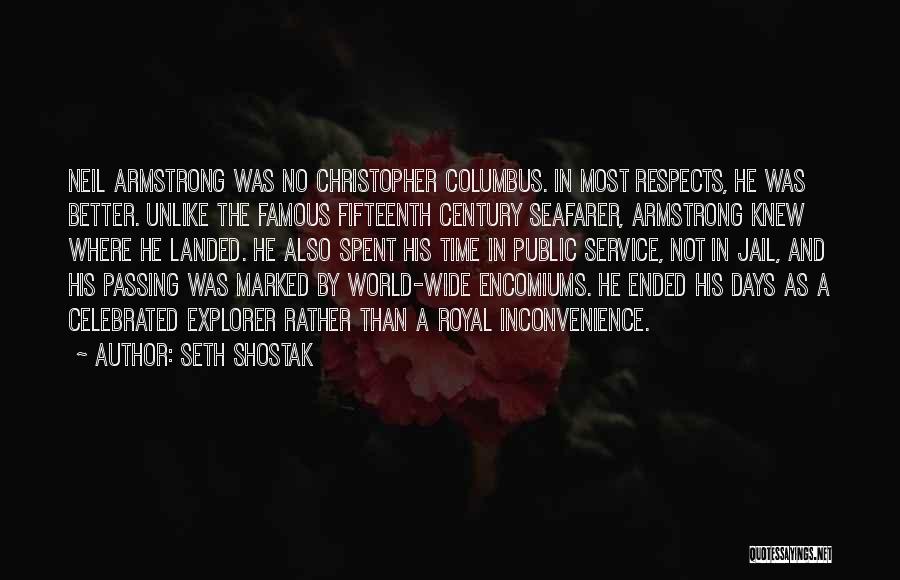
Neil Armstrong was no Christopher Columbus. In most respects, he was better. Unlike the famous fifteenth century seafarer, Armstrong knew where he landed. He also spent his time in public service, not in jail, and his passing was marked by world-wide encomiums. He ended his days as a celebrated explorer rather than a royal inconvenience. — Seth Shostak
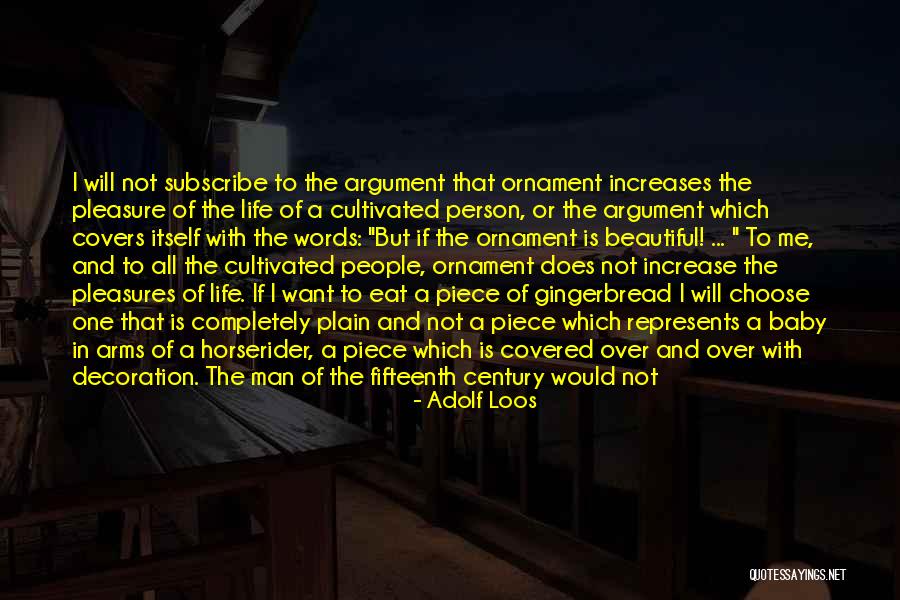
I will not subscribe to the argument that ornament increases the pleasure of the life of a cultivated person, or the argument which covers itself with the words: "But if the ornament is beautiful! ... " To me, and to all the cultivated people, ornament does not increase the pleasures of life. If I want to eat a piece of gingerbread I will choose one that is completely plain and not a piece which represents a baby in arms of a horserider, a piece which is covered over and over with decoration. The man of the fifteenth century would not understand me. But modern people will. The supporter of ornament believes that the urge for simplicity is equivalent to self-denial. No, dear professor from the College of Applied Arts, I am not denying myself! To me, it tastes better this way. — Adolf Loos
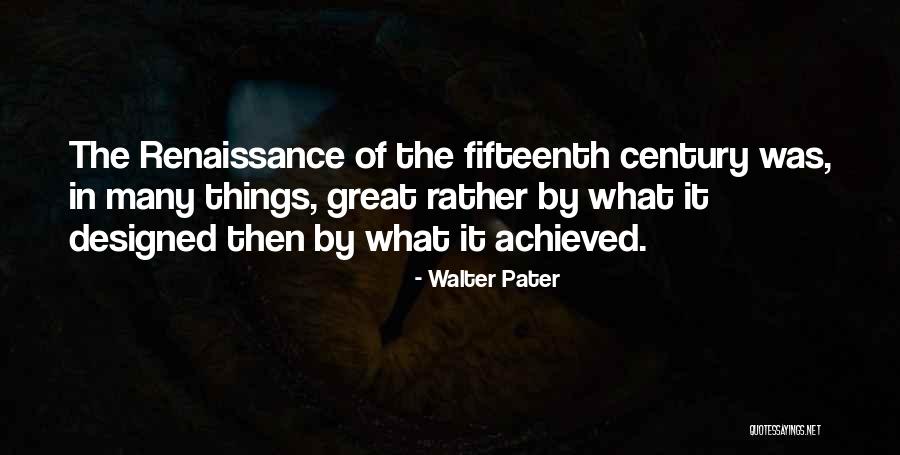
The Renaissance of the fifteenth century was, in many things, great rather by what it designed then by what it achieved. — Walter Pater
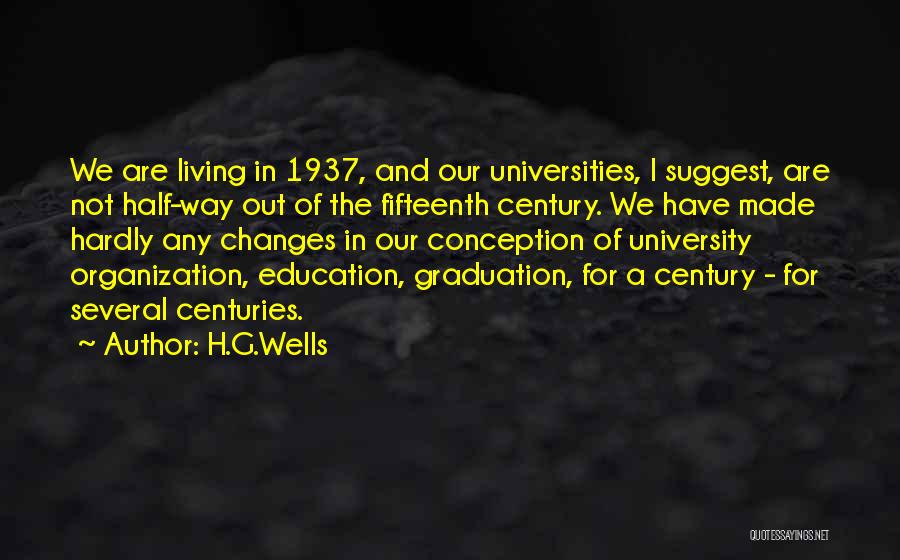
We are living in 1937, and our universities, I suggest, are not half-way out of the fifteenth century. We have made hardly any changes in our conception of university organization, education, graduation, for a century - for several centuries. — H.G.Wells
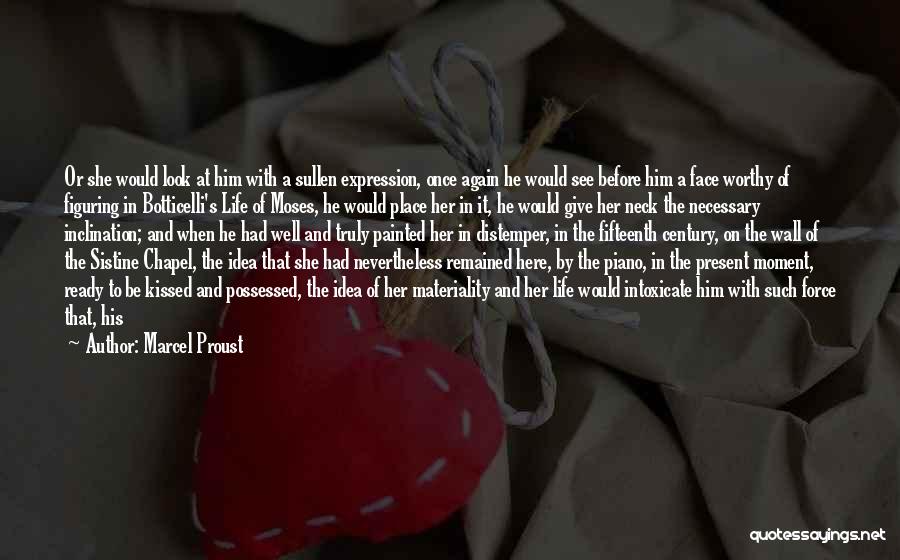
Or she would look at him with a sullen expression, once again he would see before him a face worthy of figuring in Botticelli's Life of Moses, he would place her in it, he would give her neck the necessary inclination; and when he had well and truly painted her in distemper, in the fifteenth century, on the wall of the Sistine Chapel, the idea that she had nevertheless remained here, by the piano, in the present moment, ready to be kissed and possessed, the idea of her materiality and her life would intoxicate him with such force that, his eyes distracted, his jaw tensed as though to devour her, he would swoop down upon that Botticelli virgin and begin pinching her cheeks. — Marcel Proust

The text, written in Latin, was inspired by a fifteenth-century chef known as Maestro Martino and was called De honesta voluptate et valitudine, On honest pleasures and good health. — Bill Buford
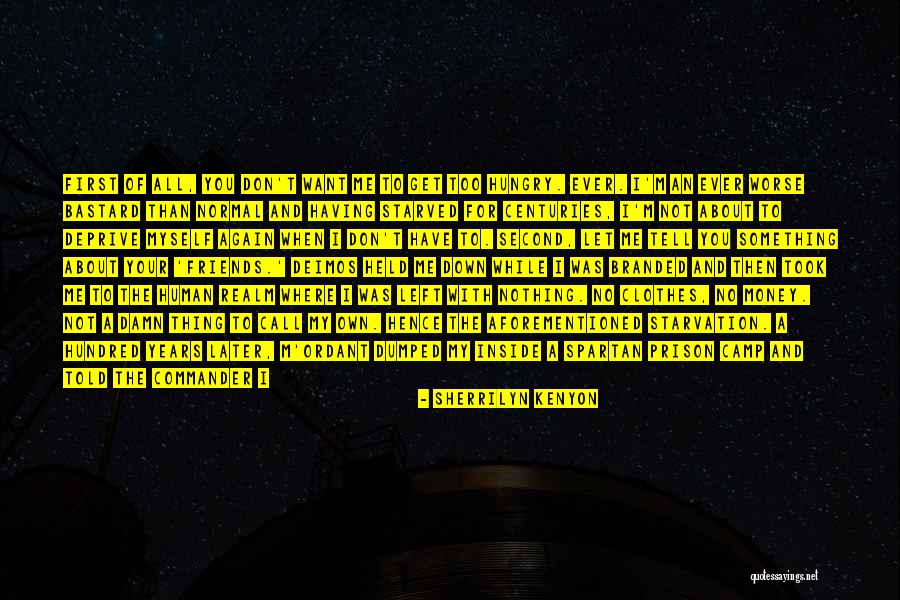
First of all, you don't want me to get too hungry. Ever. I'm an ever worse bastard than normal and having starved for centuries, I'm not about to deprive myself again when I don't have to. Second, let me tell you something about your 'friends.' Deimos held me down while I was branded and then took me to the human realm where I was left with nothing. No clothes, no money. Not a damn thing to call my own. Hence the aforementioned starvation. A hundred years later, M'Ordant dumped my inside a Spartan prison camp and told the commander I was a traitor to their people. You don't really want to know what the Spartans did to people they thought betrayed them. D'Alerian had me put inside a Turkish prison in the fifteenth century where I was impaled after being tortured for three weeks. So you'll have to excuse me if I have a hard time feeling too sorry for them right now. At least no one's shoving a sharp spike up their asses. (Jericho) — Sherrilyn Kenyon
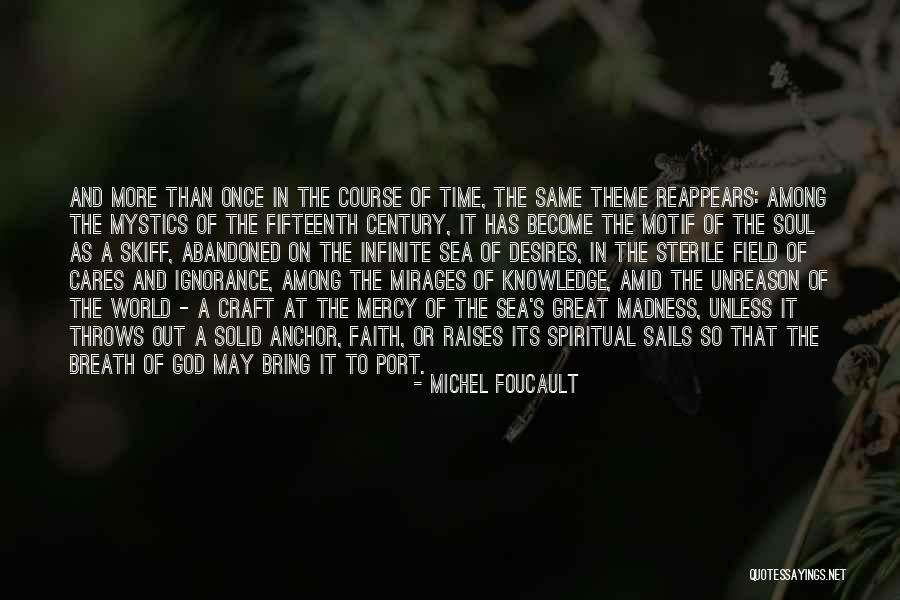
And more than once in the course of time, the same theme reappears: among the mystics of the fifteenth century, it has become the motif of the soul as a skiff, abandoned on the infinite sea of desires, in the sterile field of cares and ignorance, among the mirages of knowledge, amid the unreason of the world - a craft at the mercy of the sea's great madness, unless it throws out a solid anchor, faith, or raises its spiritual sails so that the breath of God may bring it to port. — Michel Foucault
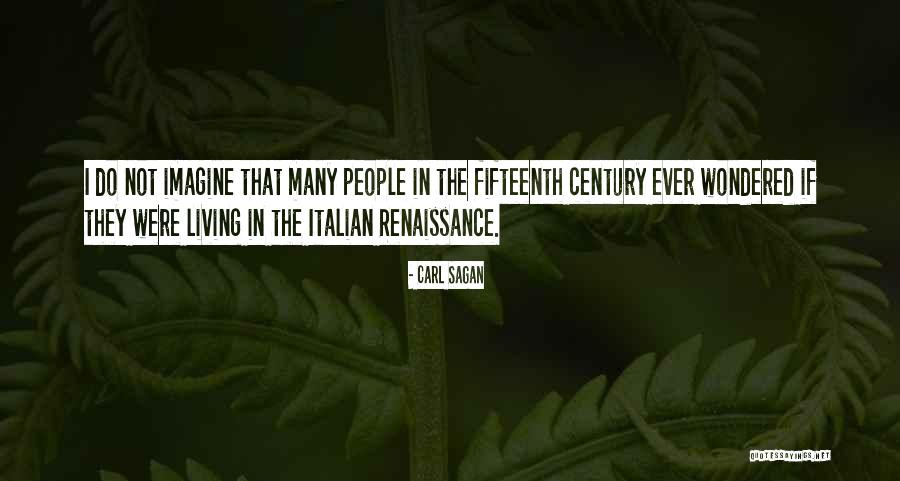
I do not imagine that many people in the fifteenth century ever wondered if they were living in the Italian Renaissance. — Carl Sagan
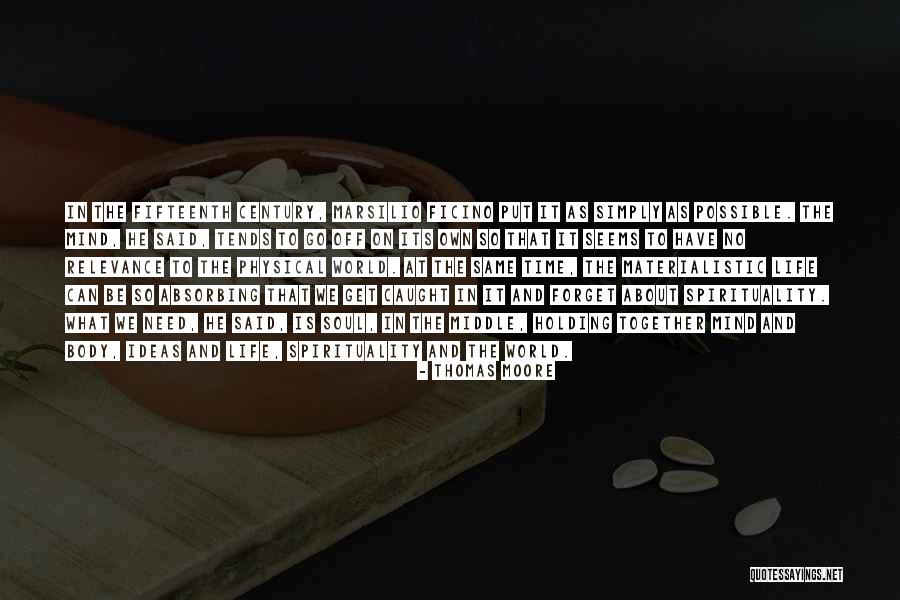
In the fifteenth century, Marsilio Ficino put it as simply as possible. The mind, he said, tends to go off on its own so that it seems to have no relevance to the physical world. At the same time, the materialistic life can be so absorbing that we get caught in it and forget about spirituality. What we need, he said, is soul, in the middle, holding together mind and body, ideas and life, spirituality and the world. — Thomas Moore

At the height of their power in the fifteenth century, the Hanseatics were believed to have had at their command 40,000 vessels and 300,000 men. — Mark Kurlansky

A German merchant of the fifteenth century asked an eminent professor where he should send his son for a good business education. The professor responded that German universities would be sufficient to teach the boy addition and subtraction but he would have to go to Italy to learn multiplication and division. Before you smile indulgently, try multiplying or even just adding the Roman numerals CCLXIV, MDCCCIX, DCL, and MLXXXI without first translating them. — John Allen Paulos
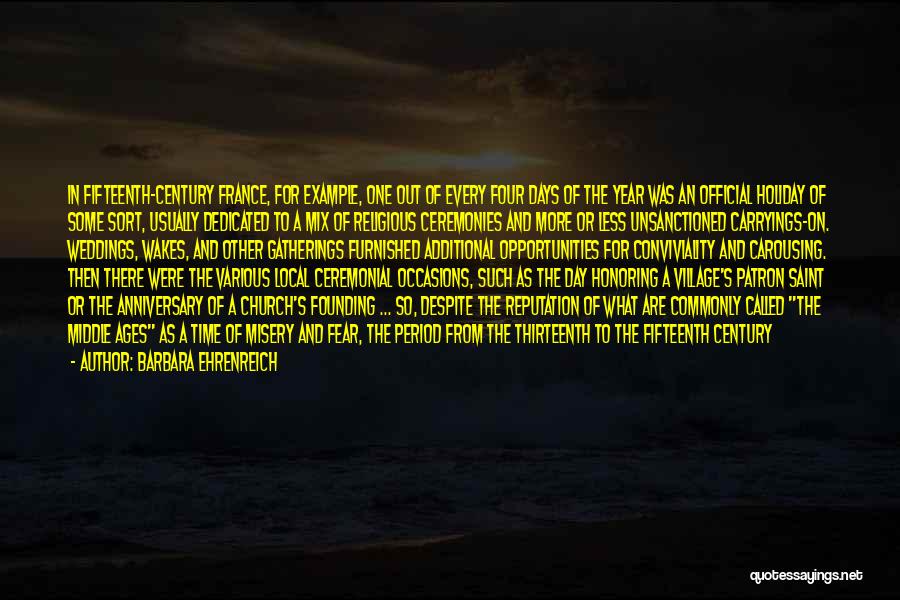
In fifteenth-century France, for example, one out of every four days of the year was an official holiday of some sort, usually dedicated to a mix of religious ceremonies and more or less unsanctioned carryings-on. Weddings, wakes, and other gatherings furnished additional opportunities for conviviality and carousing. Then there were the various local ceremonial occasions, such as the day honoring a village's patron saint or the anniversary of a church's founding ... So, despite the reputation of what are commonly called "the Middle Ages" as a time of misery and fear, the period from the thirteenth to the fifteenth century can be seen - at least in comparison to the puritanical times that followed - as one long outdoor party, punctuated by bouts of hard labor. — Barbara Ehrenreich
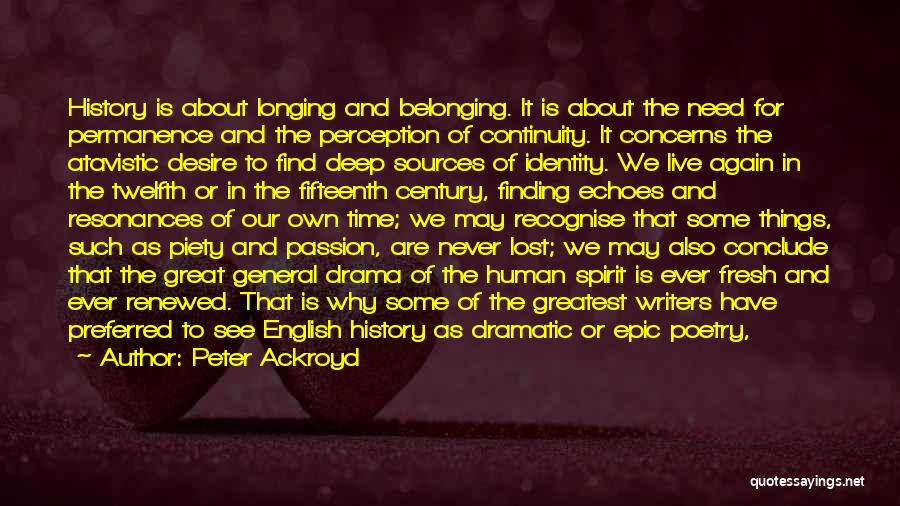
History is about longing and belonging. It is about the need for permanence and the perception of continuity. It concerns the atavistic desire to find deep sources of identity. We live again in the twelfth or in the fifteenth century, finding echoes and resonances of our own time; we may recognise that some things, such as piety and passion, are never lost; we may also conclude that the great general drama of the human spirit is ever fresh and ever renewed. That is why some of the greatest writers have preferred to see English history as dramatic or epic poetry, which is just as capable of expressing the power and movement of history as any prose narrative; it is a form of singing around a fire. — Peter Ackroyd

In the fifteenth century the Pope deeded the entire western hemisphere to Spain and Portugal and nobody paid the slightest attention to the fact that the real estate was already occupied by several million Indians with their own laws, customs, and notions of property rights. His grant deed was pretty effective, too. Take a look at a western hemisphere map sometime and notice where Spanish is spoken and where Portuguese is spoken - and see how much land the Indians have left. — Robert A. Heinlein
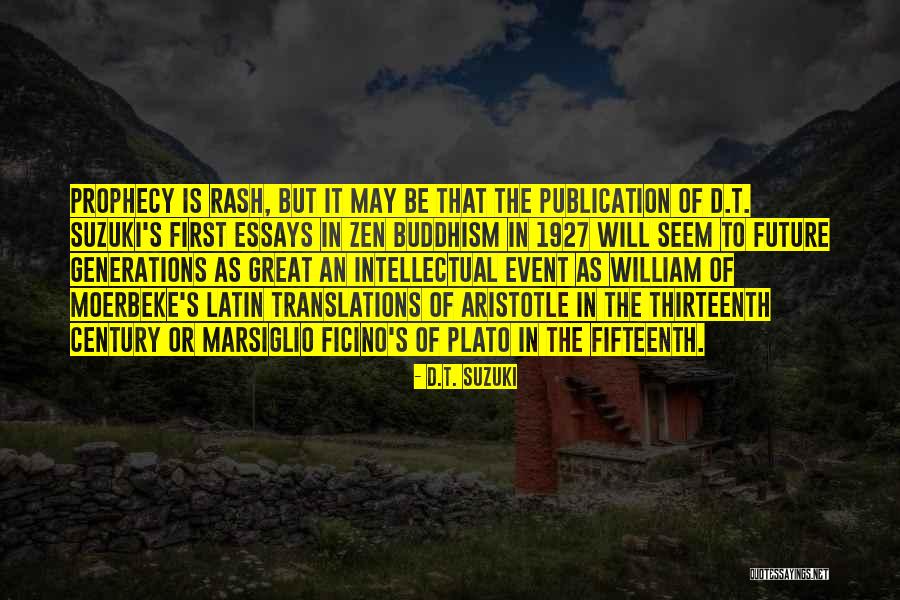
Prophecy is rash, but it may be that the publication of D.T. Suzuki's first Essays in Zen Buddhism in 1927 will seem to future generations as great an intellectual event as William of Moerbeke's Latin translations of Aristotle in the thirteenth century or Marsiglio Ficino's of Plato in the fifteenth. — D.T. Suzuki
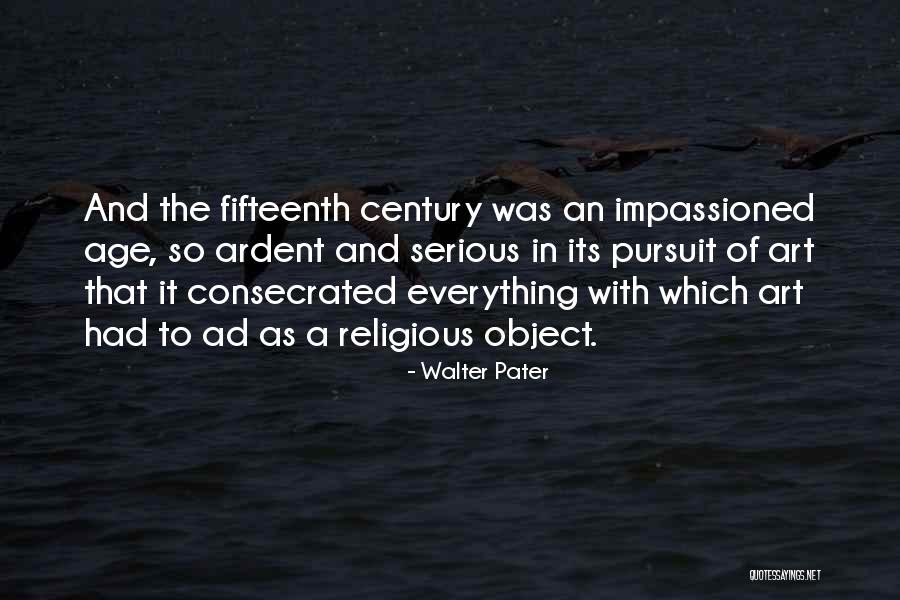
And the fifteenth century was an impassioned age, so ardent and serious in its pursuit of art that it consecrated everything with which art had to ad as a religious object. — Walter Pater
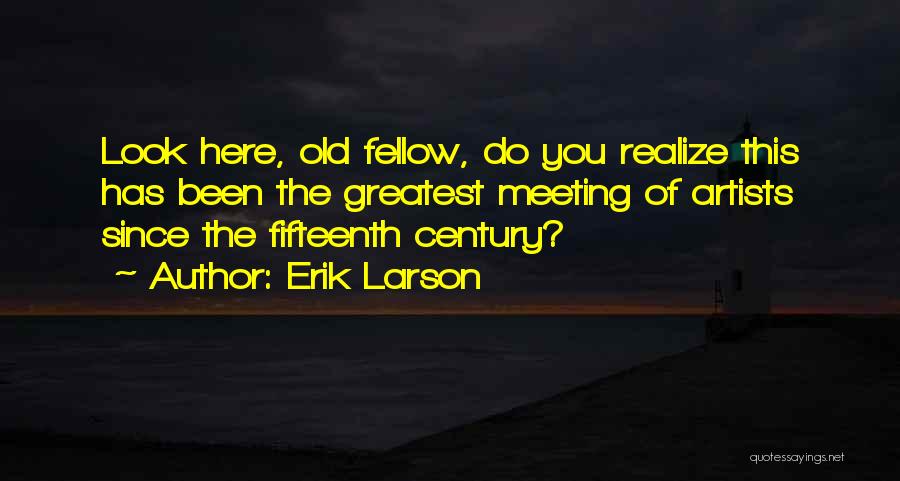
Look here, old fellow, do you realize this has been the greatest meeting of artists since the fifteenth century? — Erik Larson
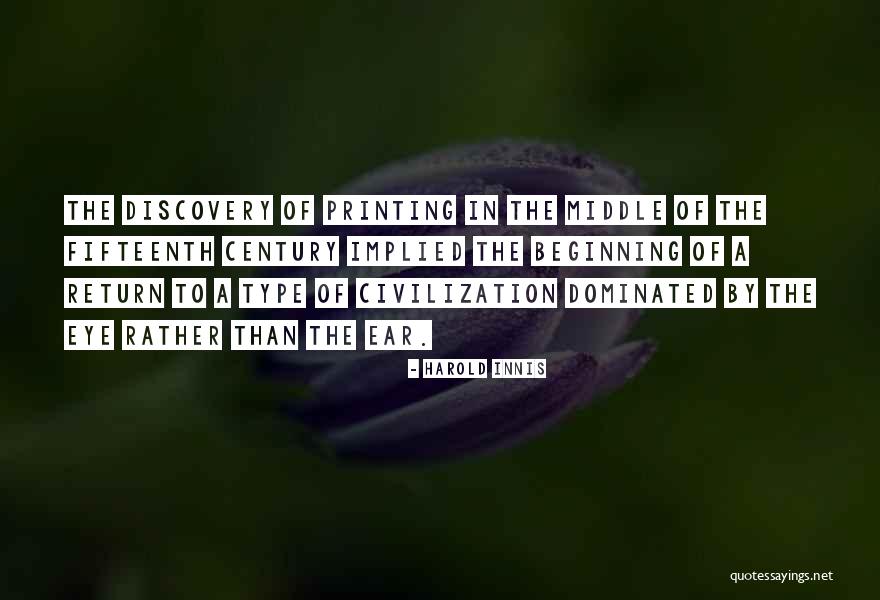
The discovery of printing in the middle of the fifteenth century implied the beginning of a return to a type of civilization dominated by the eye rather than the ear. — Harold Innis

After Hatuey, a fifteenth-century Indian insurrectionist, had been fixed to the stake, his Spanish captors extended him the choice of converting to Christianity and ascending to Heaven of going unrepentantly to Hell. Gathering that his executioners expected to go to heaven, Hatuey chose the other — Kathy Acker
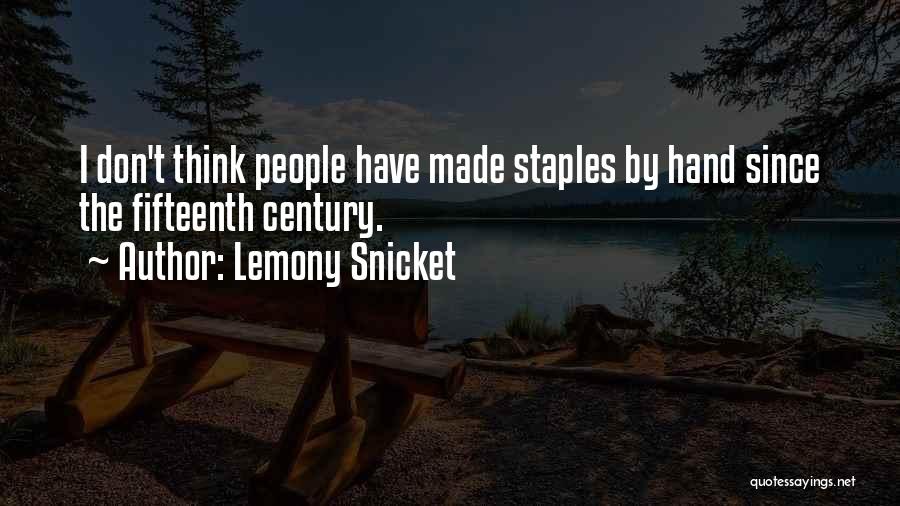
I don't think people have made staples by hand since the fifteenth century. — Lemony Snicket

Among Violet's many useful skills was a vast knowledge of different types of knots. The particular knot she was using was called the Devil's Tongue. A group of female Finnish pirates invented it back in the fifteenth century, and named it the Devil's Tongue because it twisted this way and that, in the most complicated and eerie way. — Lemony Snicket
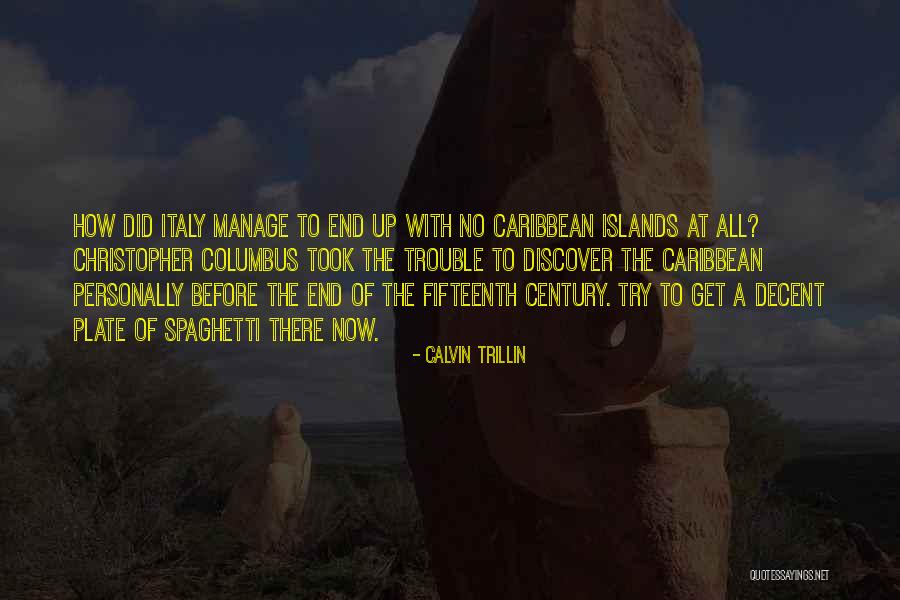
How did Italy manage to end up with no Caribbean islands at all? Christopher Columbus took the trouble to discover the Caribbean personally before the end of the fifteenth century. Try to get a decent plate of spaghetti there now. — Calvin Trillin
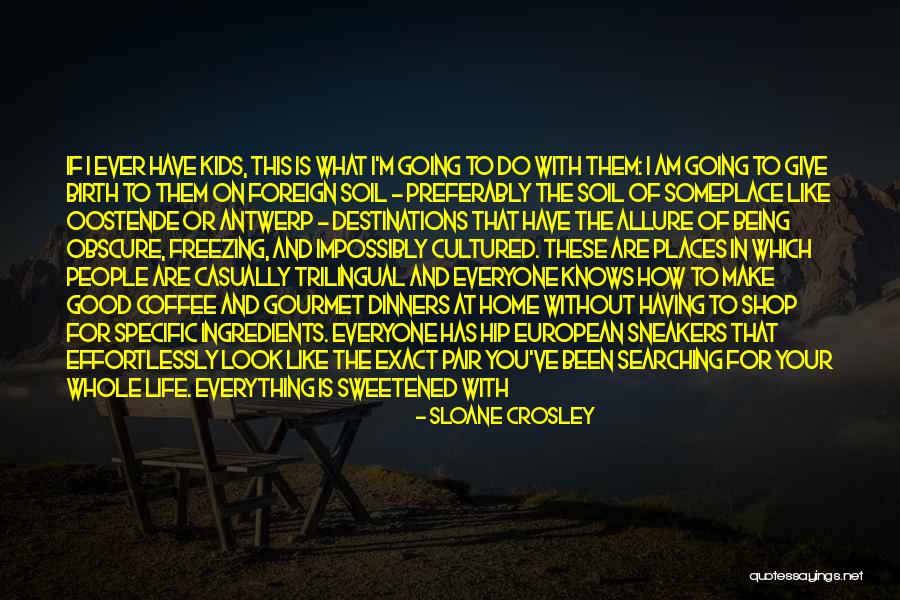
If I ever have kids, this is what I'm going to do with them: I am going to give birth to them on foreign soil - preferably the soil of someplace like Oostende or Antwerp - destinations that have the allure of being obscure, freezing, and impossibly cultured. These are places in which people are casually trilingual and everyone knows how to make good coffee and gourmet dinners at home without having to shop for specific ingredients. Everyone has hip European sneakers that effortlessly look like the exact pair you've been searching for your whole life. Everything is sweetened with honey and even the generic-brand Q-tips are aesthetically packaged. People die from old age or crimes of passion or because they fall off glaciers. All the woman are either thin, thin and happy, fat and happy, or thin and miserable in a glamorous way. Somehow none of their Italian heels get caught in the fifteenth-century cobblestone. Ever. — Sloane Crosley
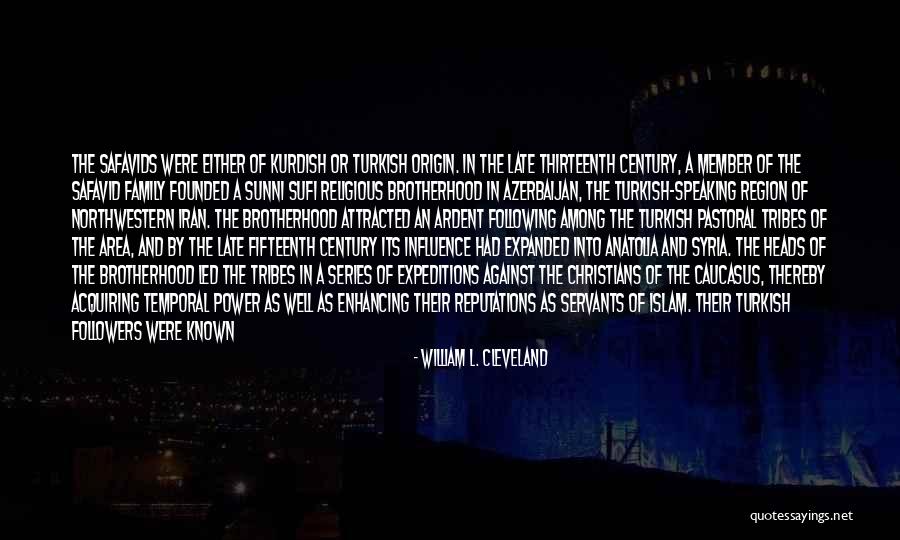
The Safavids were either of Kurdish or Turkish origin. In the late thirteenth century, a member of the Safavid family founded a Sunni Sufi religious brotherhood in Azerbaijan, the Turkish-speaking region of northwestern Iran. The brotherhood attracted an ardent following among the Turkish pastoral tribes of the area, and by the late fifteenth century its influence had expanded into Anatolia and Syria. The heads of the brotherhood led the tribes in a series of expeditions against the Christians of the Caucasus, thereby acquiring temporal power as well as enhancing their reputations as servants of Islam. Their Turkish followers were known as Qizilbash, the Redheaded Ones, after the red headgear they wore to identify themselves as supporters of the Safavid brotherhood. — William L. Cleveland
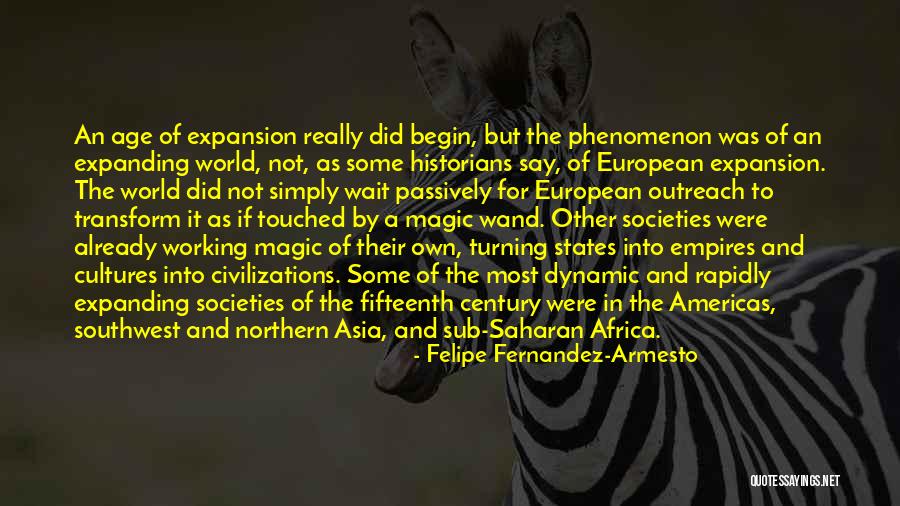
An age of expansion really did begin, but the phenomenon was of an expanding world, not, as some historians say, of European expansion. The world did not simply wait passively for European outreach to transform it as if touched by a magic wand. Other societies were already working magic of their own, turning states into empires and cultures into civilizations. Some of the most dynamic and rapidly expanding societies of the fifteenth century were in the Americas, southwest and northern Asia, and sub-Saharan Africa. — Felipe Fernandez-Armesto

He belonged to a walled city of the fifteenth century, a city of narrow, cobbled streets, and thin spires, where the inhabitants wore pointed shoes and worsted hose. His face was arresting, sensitive, medieval in some strange inexplicable way, and I was reminded of a portrait seen in a gallery I had forgotten where, of a certain Gentleman Unknown. Could one but rob him of his English tweeds, and put him in black, with lace at his throat and wrists, he would stare down at us in our new world from a long distant past - a past where men walked cloaked at night, and stood in the shadow of old doorways, a past of narrow stairways and dim dungeons, a past of whispers in the dark, of shimmering rapier blades, of silent, exquisite courtesy. — Daphne Du Maurier
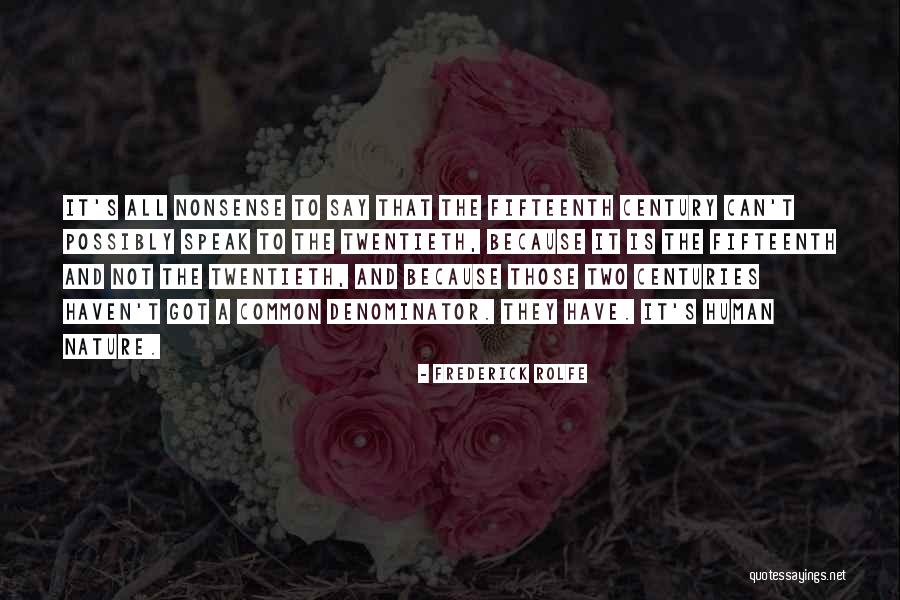
It's all nonsense to say that the Fifteenth Century can't possibly speak to the Twentieth, because it is the Fifteenth and not the Twentieth, and because those two Centuries haven't got a Common Denominator. They have. It's Human Nature. — Frederick Rolfe





